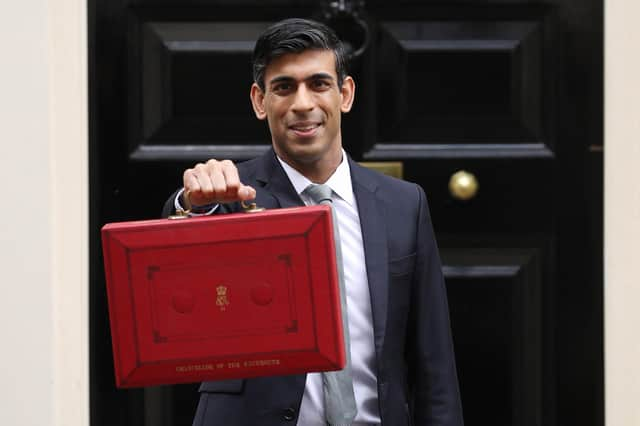Planned Universal Credit cut raises fundamental questions about in-work poverty – Scotsman comment


Life for those already struggling to get by is about to become even harder.
The effect of the decision will be so profound that it has united six former Conservative Work and Pensions Secretaries in calling for the current level of payments to be retained. In a letter to Chancellor Rishi Sunak, they said the money was necessary to enable people to “live with dignity”.
Advertisement
Hide AdAdvertisement
Hide AdEven putting moral arguments aside, the extra benefit payment can also be regarded as an efficient form of economic stimulus as much of it will go to local shops at a time when many of them are also struggling.
In Scotland, about 480,000 people are on Universal Credit and so it is not surprising that the Scottish government has added its voice to those calling for the planned cut to be scrapped.
The UK government would do well to listen to such an array of voices from across the political spectrum.
However, the fact that so many people in employment are forced to rely on benefits should raise more fundamental questions about modern society.
Benefits are designed to be a safety net for individual people, but there is a danger that they are turning into a form of state subsidy for employers who are able to pay wages that would otherwise be too low for people to accept.
Minimum wage legislation was an attempt to address this problem. However, earlier this month the UK government “named and shamed” nearly 200 firms – including some household names – for breaking the law by withholding £2.1 million owed to about 34,000 workers since 2011, suggesting that enforcement needs to be significantly tougher.
In an ideal world, those who work full-time would earn enough money to keep themselves without the need for benefits.
The real world is seldom ideal, but we must guard against a situation in which a growing number of people earn so little that they pay hardly any tax and cannot afford basics like food and heating, while receiving benefits funded by a shrinking band of taxpayers.
A message from the Editor:
Thank you for reading this article. We're more reliant on your support than ever as the shift in consumer habits brought about by coronavirus impacts our advertisers.
If you haven't already, please consider supporting our trusted, fact-checked journalism by taking out a digital subscription.
Comments
Want to join the conversation? Please or to comment on this article.
